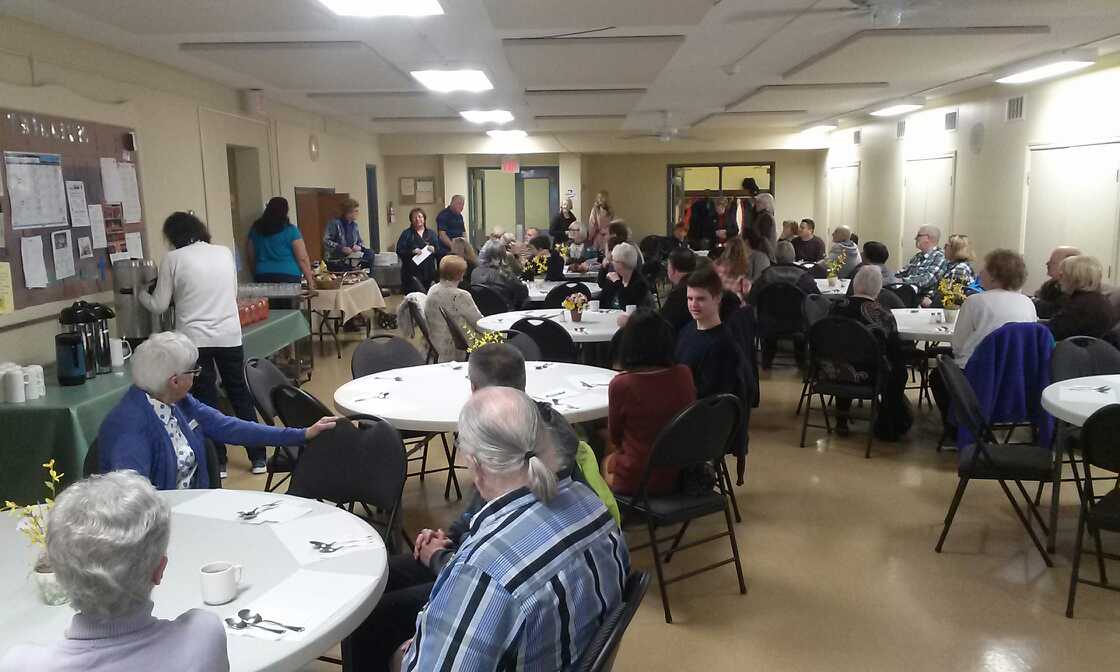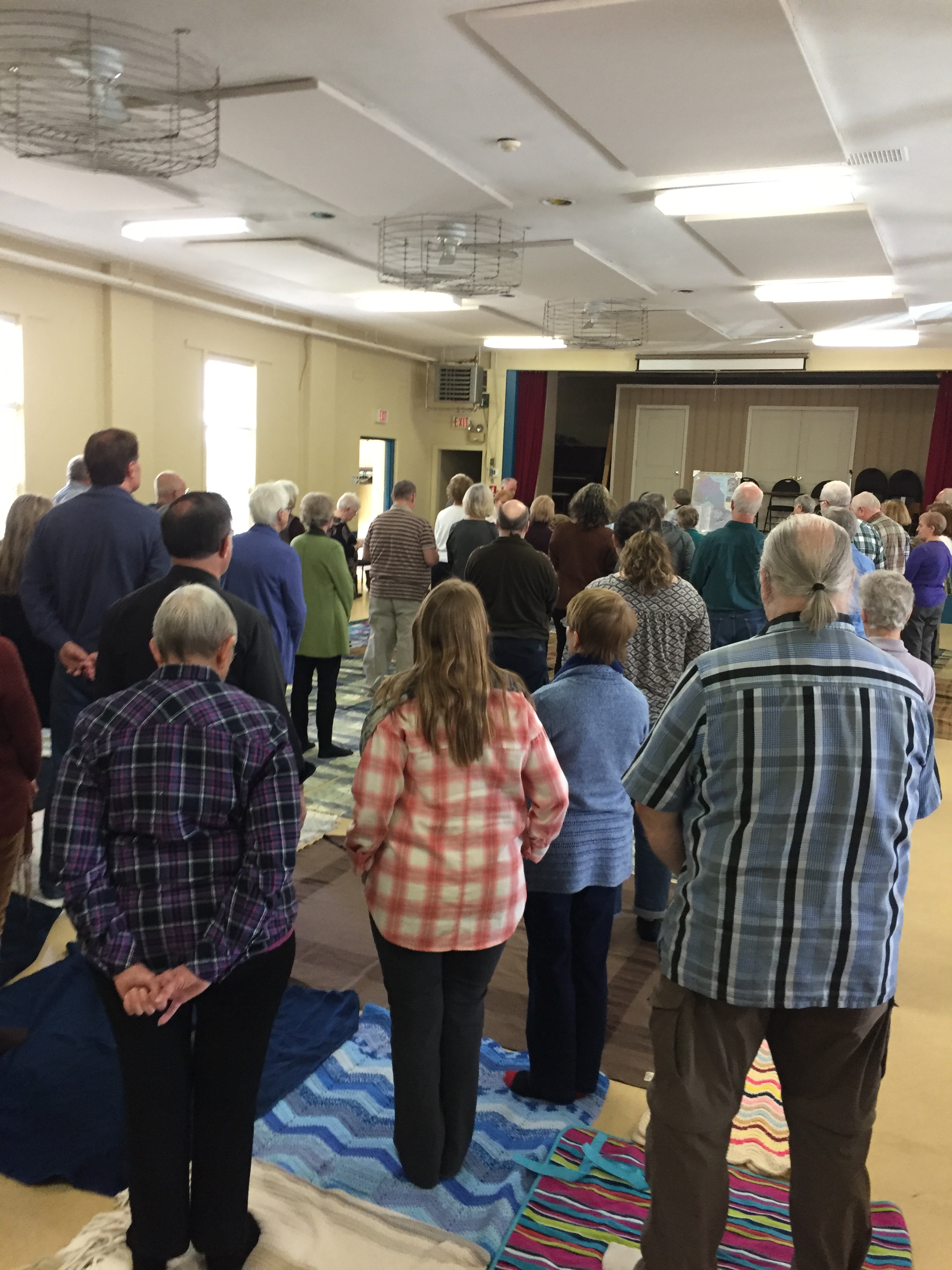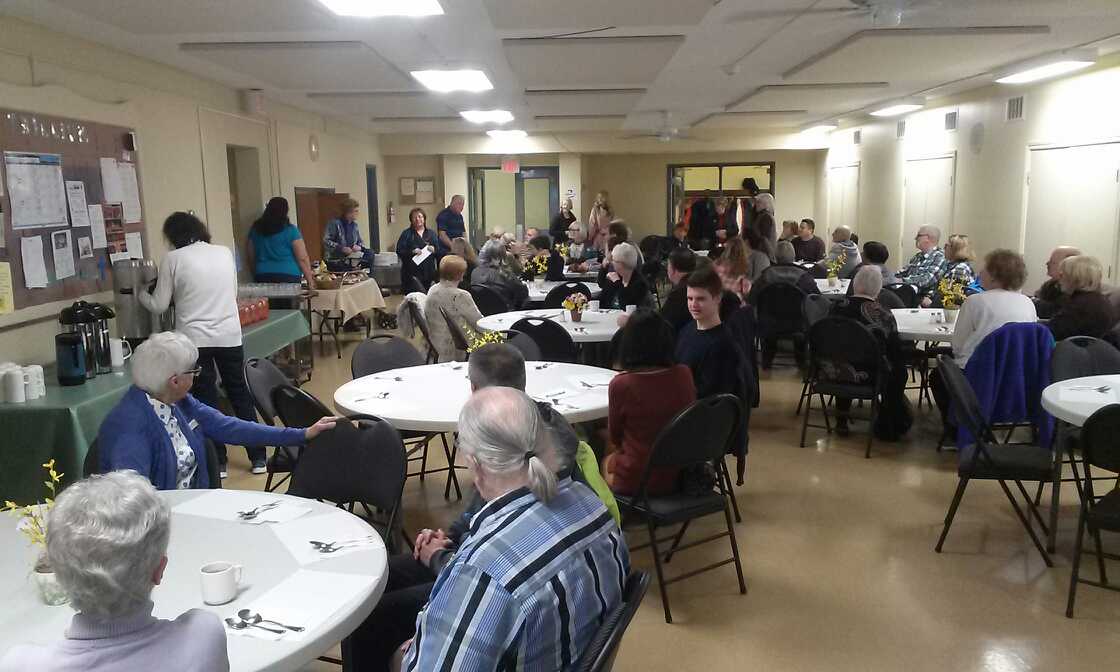by Dan Struthers
Sixty-five people from Oakville, Burlington, Hamilton, Waterdown and the surrounding area first gathered in the Fireside Room at St. Matthew on-the-Plains Burlington.

Then we were drummed into the Sanctuary by Myka Burning (spirit name is ti:yehs). An Iroquois, she introduced an Ojibwa song gifted to her when part of a drum band.
Our own Janice Whiteley (Silver Thunderbird Woman) shared her experiences growing up in Chapleau Ontario as a member of the Chapleau Cree First Nation.
She connected with her roots as an adult. Her journey has involved her Christian upbringing in the Anglican Church, balancing with an Aboriginal spirituality with which she strongly connects.
St. Matthew’s parishioner Jim Shephard told of his hidden Micmac heritage.
Growing up, he did not know his grandmother was Micmac. When Jim questioned this, his father said it was never talked about due to discrimination the family experienced—denying their heritage was the solution. For 60 years Jim was denied part of his heritage, which he is now able to explore.
Ojibwa Language and Knowledge Keeper Rene Meshake played flute music and described the language of the flute. He related the creation story in his native tongue and in English. We were one of the first groups to hear him tell the creation story in his native tongue.
Val Kerr, Niagara’s Archdeacon of Truth and Reconciliation and Indigenous Ministry, spoke about her upbringing and perspective on how Residential Schools affected First Nations culture and society. She spoke of her grandmother and how fortunate she feels to have her as an example and teacher. Val admires her grandmother, who was generous despite her impoverished circumstances. “She taught us the seven Grandfather Teachings—generosity, truth, humility, wisdom, respect, courage and love.”
Myka drummed us to a traditional lunch provided by Six Nations cook Lana Henhawk. The registration fees ($800) were donated to assist Lana in her Cooking Ministry, especially with youth.

In the Blanket Ceremony we stepped on blankets, including some we brought to take home as a memento of the experience. Individuals told the history of the First Nations. The story started before the arrival of the Europeans, through their contact and conduct with the First Nations and how this changed over the years. For example, when natives were dying because of European introduced diseases, some of us were asked to move off our blankets, representing those that had died.
It was very moving to see how families were decimated by disease, starvation or isolation. As treaties changed, blankets were removed or configured to illustrate changes to the territories occupied by First Nations people.
It was shocking to see how the land (blankets) and the number of indigenous people (us) were diminished. Even today, over 1,000 Indigenous women are registered as missing without a trace, with many more believed not to be registered with the police. We also learned of the devastation families endured because of Residential Schools.
In a circle with a “talking feather,” we expressed our personal stories and what we learned or experienced during the blanket ceremony.
We heard how devastated the Six Nations community was after six young people returning from a Christian Youth Group outing were in an automobile accident – killing two and seriously injuring others. Participants donated $373 and an anonymous donor phoned offering $2,000, which was sent to the youth group to cover funeral expenses or help with their healing process.
This was an impactful learning experience. We took a step in the right direction in implementing the Truth and Reconciliation Report recommendations.
We ended the day being drummed home by Myka.

Resurrection of Hope in Thundering Waters